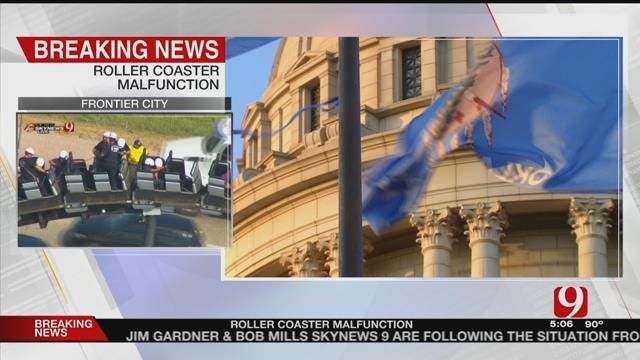Voter Breakdown From Tuesday's Primary
<p>While turnout was higher than previous election cycles for at least one Oklahoma party, the emotion surrounding this year’s contentious politics, both on a national and statewide stage, may have proved to be less important than expected. </p>Wednesday, June 29th 2016, 4:53 pm
While turnout was higher than previous election cycles for at least one Oklahoma party, the emotion surrounding this year’s contentious politics, both on a national and statewide stage, may have proved to be less important than expected.
“Turnout is so hard to gauge in a primary election. It's really a party enthusiast election,” Bill Shapard, from Soonerpoll, said.
According to the State Election Board, 929,875 Republicans, 838,563 Democrats, 281,760 independents and 807 Libertarians registered to vote in Oklahoma. 2016 marked the first time a Libertarian party primary was held in Oklahoma.
Approximately 24.2 percent of Republicans voted Tuesday, according to the board. The turnout was just above the last presidential election in 2012. That turnout forced the three incumbents to lose their seats. But despite those losses, the anger many voters expressed toward the GOP establishment just wasn't there, allowing most incumbents to stay in office.
“You'll see that the five Congressional seats that we have, really none of them were in trouble. We can see that that anger is still driven at the national level is really more anti-Democratic,” Shapard said.
All five Republican incumbent candidates in Oklahoma handily won their primary races.
On the other side of the aisle, it's impossible to gauge turnout, an elections board spokesperson said. This year, independents voted in the Democratic primary and there weren’t the same amount of national congressional races like the Republicans which allowed a pool of statewide Democrats from which to draw.
But still, Oklahoma Democrats voted for U.S. Sen. Bernie Sanders (I-VT) fueled by anger at their own establishment, but again that emotion didn't seem to play out in the Sooner State.
“Those local issues, those local races and personalities will drive that messaging,” Shapard said speaking about a seeming lack of turnout from the left. “So those Bernie voters were probably there it's just that there was nothing unifying them at the state level.”
He added the real test for both candidates and voters will come in the general elections in November.
Oklahoma saw a significant rise in Republican voter registration ahead of the presidential primary on Super Tuesday back in March. A large portion of the increase came from voters changing their party registration. Nearly 3800 Democrats and independents switched parties.
Some analysts said the switch was due to the rise and now overall success of Donald Trump’s campaign for the GOP nomination. However, the elections board does not track demographics or reasoning for party switching, only raw data.
Shapard added one other take away from the contentious political season was a higher number of candidates filing to run, including nearly 80 educators who filed for office. Forty of those candidates, having been dubbed the “teachers caucus” either won or will be heading to runoff elections.
The number of runoff elections is also higher this year, according to Shapard. He said the frustration and anger felt on both sides of the aisle after being disappointed by the state legislative session drove many more candidates to candidates to file for office, splitting the vote in districts across the state
One piece missing from this year’s state primary are voter motives. Neither the elections board nor Soonerpoll conducted exit polls to see which issues were driving voters to the polls in higher numbers than previous years.
More Like This
June 29th, 2016
November 13th, 2024
October 28th, 2024
October 17th, 2024
Top Headlines
December 21st, 2024
December 21st, 2024
December 21st, 2024










